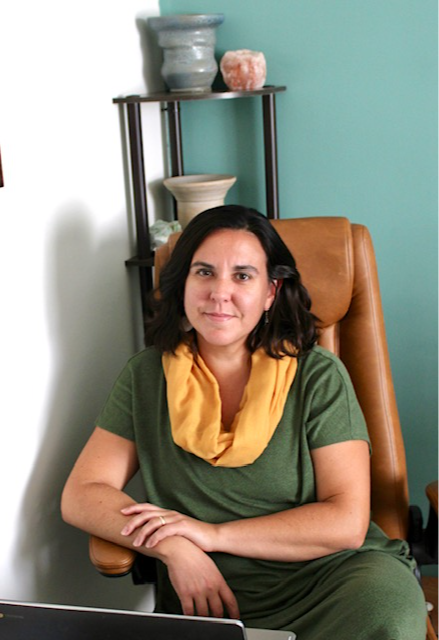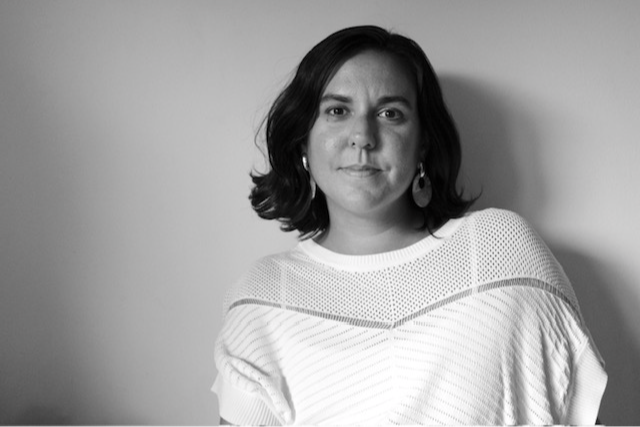Alright – so today we’ve got the honor of introducing you to Libby Shaw. We think you’ll enjoy our conversation, we’ve shared it below.
Hi Libby , so excited to have you with us today and we are really interested in hearing your thoughts about how folks can develop their empathy? In our experience, most folks want to be empathic towards others, but in a world where we are often only surrounded by people who are very similar to us, it can sometimes be a challenge to develop empathy for others who might not be as similar to us. Any thoughts or advice?
Thanks for having me! Aside from more obvious features that bring people together or keep them apart (culture, ethnicity, spirituality), what draws us to developing friendships, workplace relationships, and romances with some people and not others? Usually, it’s some common ground. Consider a friend whose upbringing and lifestyle are radically different from your own: something brought you two together—whether that be your place of work, phase of life (school, parenting), or an interest or hobby (sports, music, gaming, hiking). When a common thread connects you to someone, even if different from you, it becomes less challenging to understand and ultimately empathize with them. But what happens if there is no common thread? Taking that a step further, what about someone whose ethics or choices are contrary to your own?
My most important lessons in empathy came from my career in counseling, where I was fortunate to meet people I may never have crossed paths with outside of my office. Some behaviors addressed in counseling were ones typically seen by society as “inexcusable”–violence and aggression, criminal behaviors, drugs, etc. As a therapist I’ve had the privilege of getting to know the human being behind the “problems”–-which were typically symptoms of deeply rooted feelings of despair, hopelessness, powerlessness, and pain.
You often hear arguments comparing situations, such as “well I had it hard, and I didn’t do that”. The problem with that is we are complex individuals who cannot be reduced to an equation for how something “should” be handled. Two people may experience the same hardship but process it in very different ways. We are intricate puzzles that are constantly expanding and shifting, gathering pieces from every aspect of our lives: family, community, social circles, history, traumas and more. We are tasked to take all of our pieces–the good, the bad and the ugly– and make them fit. Ideally you have a mix of jagged and smooth pieces to come together and create a balanced and cohesive picture. But what happens when most of the pieces are jagged? You get a pretty disjointed and uncomfortable image. I have had the privilege of learning the importance of considering all aspects of a person’s puzzle to better understand and help them.
So my advice is this: recognize that if someone’s “puzzle” doesn’t make sense or is disturbing to you, that means there is an aspect of the image you are not privy to, or are not considering. Everyone’s thoughts, feelings, and actions make sense if you are seeing and considering the whole story. Empathy does not mean you have to agree with, forgive or condone the actions or beliefs of others—it simply means you are able to see the humanity behind the puzzle.

Let’s take a small detour – maybe you can share a bit about yourself before we dive back into some of the other questions we had for you?
I’ve been in the counseling profession for over a decade now, and have been fortunate to have worked in a wide variety of clinical settings and with people ranging from toddlers to the elderly. This gave me the humbling experience of getting to know and understand people from many paths of life.
I created a remote private practice in 2022 so that I can work exclusively with clients whose needs I feel require my particular experience and skill set. A unique part of my practice is that when clients work with me, they won’t be transferred to a receptionist or scheduling center, they just communicate with me. Additionally, conducting virtual sessions allows for more flexible availability, and for clients to work with therapists based on their specialties, not simply their location. As a Licensed Professional Counselor (LPC) in both New Jersey and Pennsylvania, I am able to work with clients in both states.
There is so much advice out there about all the different skills and qualities folks need to develop in order to succeed in today’s highly competitive environment and often it can feel overwhelming. So, if we had to break it down to just the three that matter most, which three skills or qualities would you focus on?
From my experience, I would recommend starting with flexibility, creativity, and persistence. Having a vision for your future is important, however being rigid in how to bring this goal into fruition can lead to failure. While being adaptable in your goal is beneficial, flexibility in how you plan on achieving your goal is essential. In that same vein, I think creativity is required when it comes to developing a plan of how to reach your goals. Flexibility will first allow your plans to be moveable, and then creativity will allow you to think outside of the box to find alternative routes.
Lastly, persistence is the base for all of this. It’s not enough to be flexible just one time and come up with one creative new idea—you have to be willing to continue to repeat this pattern over and over again throughout your career as well as your personal life. The same can be said for your mental health: it’s not enough to try just one time to reach your goal of wellness, whatever that looks like for you. Persistence is key: find a new therapist you click with; try a new program that might better meet your needs; continue to do the work outside of your counseling.
Who is your ideal client or what sort of characteristics would make someone an ideal client for you?
My practice has focused on working with people struggling with trauma, family and relationship stressors, life transitions, and anxiety. While every client has different needs, I encourage all my clients to explore their history in order to gain deeper understanding as to how they currently navigate their relationships and environment. Someone who is open to exploring their history would definitely be a good fit for my practice.
Circling back to the topic of empathy, having empathy for oneself is crucial. People come to counseling when their puzzle is looking or feeling “off”; when the pieces they have are not fitting in a way that makes their lives comfortable or functional. Oftentimes, they feel bewildered and uncertain as to how to move forward. We can’t take pieces away, but we can deconstruct the puzzle, analyze each piece, find which pieces are missing (healthy boundaries, hobbies, purpose, self care, etc), then rearrange them to create a more balanced and harmonious puzzle.
If you’re interested in learning more about the counseling services I offer or to get in contact with me, please visit my website at artandcounseling.com.
Contact Info:
-
- Website: https://artandcounseling.com/
Image Credits
N/A
so if you or someone you know deserves recognition please let us know here.




